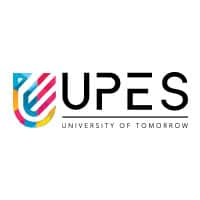UPES | BBA Admissions 2025
#41 in NIRF, NAAC ‘A’ Grade | 100% Placement, up to 30% meritorious scholarships | Last Date to Apply: 23rd June
Selecting between the Master of Business Administration (MBA) and Master of Computer Applications (MCA) degrees can be difficult as they offer different career paths. An MBA programme develops management and leadership abilities, while MCA focuses on technical proficiency in software and IT. Choosing the appropriate course is based on personal career goals.

MCA programmes are ideal for individuals who have a strong interest in technology, coding, and software development. They can lead to careers in software engineering and development, and IT. In contrast, an MBA offers positions in management, finance, and entrepreneurship across diverse industries and places a strong emphasis on leadership and business acumen.
Students must consider their interests, abilities, and professional objectives to make an informed choice. Choosing the right degree requires careful consideration of several factors, such as industry demand, employment prospects, and potential salary. Read on to learn more about the differences between an MBA and MCA to determine which suits you best.
Also Read: Which Is the Best Online MBA in India and Abroad?
MCA, or Master of Computer Applications, is a postgraduate course that deals with the technical field. The programme will take you into the world of computer applications, software, and languages both theoretically and practically.
A candidate can pursue MCA after BCA (Bachelor of Computer Applications) or any other equivalent degree. The MCA course duration is two years, with the syllabus divided into four semesters. The total fees of an MCA course can vary from one institute to another, ranging from Rs 1 to 5 lakhs.
Candidates can work in the following mentioned fields after completion of their online MCA degree:
The salary for an MCA graduate varies based on education, organsation in which one works, and the experience of an individual. Freshers typically earn between Rs 1.79 to 3.4 LPA, while those with over five years of experience can earn up to Rs 25 LPA. This highlights the potential of MCA courses to offer lucrative career opportunities.
Indian Universities offer various MCA specialisations for students to pursue a career of their desired interest. The online MCA specialisations provided are as follows:
MCA in Systems Management
This MCA specialisation involves managing IT and computer systems. Students are provided with the research and development aspect of software systems.
MCA in MIS
MIS means Management Information System. This is a popular specialisation in the MCA course. Students within this learn to develop information systems of computer hardware and software.
MCA in Systems Development
Students in this specialisation are taught about how to develop systems including databases, customised systems, etc. for both commercial use and internal use of an organisation.
MCA in Systems Engineering
This specialisation involves an in-depth study of complex IT systems right from designing and integration to its management and maintenance.
MCA in Cloud Computing
In this specialisation, students learn about cloud computing, which involves storing files on remote servers and accessing them as needed. The demand for MCA graduates skilled in cloud computing is expected to grow over time.
MCA in Hardware Technology
Students here learn the development of hardware systems that contribute to the efficient working of the software.
MCA in Networking
This specialisation is highly in demand as the need for interaction between systems has increased over time.
MCA in Application Software
This MCA specialisation deals with the creation of software for web and smartphone applications.
MCA in Internet working
This specialisation aims at providing the students with detailed knowledge of the working of the Internet.
MCA in Software Development
Students within this specialisation learn about software development, testing, troubleshooting, and hardware technology.
Masters of Business Administration is a postgraduate course that equips you best to shine and make a career in the corporate field. The programme focuses on developing leadership, management, and business skills among students.
The most interesting aspect of the MBA course is that students of any stream can pursue it. You can either opt for an MBA after graduation or you can also go for the MBA integrated course after Class 12. The duration of the MBA course is 2 years. The programme is divided into four semesters. The online MBA course fees can differ from one university to another. However, common MBA course fees range around Rs. 4-30 LPA.
To be eligible to pursue an MBA, a candidate must be:
Admission to an MBA takes place through an admission test which may be a National Level Test, for example, CAT, MAT, CMAT, or ATMA, or a State Level Test conducted by a state-level testing agency for example MAH-CET, KMAT. Many Indian universities manage online MBA admissions through their processes including short interviews, and assessment tests among others.
Besides a regular MBA course, you can also opt for online MBA courses, Part-Time MBA, and Distance MBA programs.
Students can pursue the below-mentioned careers after completing the online MBA degree:
With industrialisation and the rise of companies, MBA graduates enjoy vast career opportunities. In India, MBA graduates earn an average salary of INR 5- 6.8 LPA, with IIM-A alumni reaching INR 25 LPA. An MBA ensures a promising career in today’s dynamic global business landscape.
Several Indian universities offer different MBA specialisations. Some of them are:
An MBA in finance is a very popular choice among students who want to work as investment bankers, financial managers, etc. It involves subjects such as Cost Accounting, Banking and Insurance, Macro and microeconomics, Corporate finance, etc. You can also opt for CFA(Chartered Financial Analyst), FRM (Financial Risk Manager), etc. courses after an MBA in finance.
MBA in Technology Management is an important specialisation that attracts plenty of students. The jobs you can opt for after this include Project Management, Network Management, Data Analytics, etc.
MBA HR courses offer lucrative job options including HR manager-talent Acquisition, HR manager-training, HR manager-compliance, etc.
MBA Marketing courses open up various job opportunities including Sales / Business Development, Brand and Product Management, etc.
An MBA in consultancy management is a good career choice. It involves the study of marketing, managing people and organisations, supply chain management, operations management consultancy practices, etc.
This field attracts people who are looking for jobs in airlines, restaurants, hotels, etc. The study of marketing and event leadership is an important part of this course.
Technology has become an integral part of our lives. It influences almost all business operations to a great extent. This course is an interesting and beneficial programme as it combines the technical and business domains.
Other MBA specialisations offered by various institutions include Import and Export, Sales, Operations, Advertising, Telecom, Public Policy, Project Management, Sports Management, NGO Management, etc.
Also Read:
There exists a greater difference between an MBA and MCA programme. The table below highlights the difference between MBA and MCA:
Criterion | MCA | MBA |
|---|---|---|
Stream | Computer applications | Management |
Type of job | Involves handling systems, and databases, creating software and testing them, and coding. | Involves implementation of strategies, executing plans, organising tasks, and building relations with clients. |
Skills required | Technical skills and knowledge of programming languages. | Leadership quality, Coordination, Management, and Analytical skills, Creativity, solutions-based approach, and communication skills. |
Average Salary | 4.5 to 6.5 LPA | Rs 6.8 LPA |
Curriculum | Fundamentals of IT, Theory of Computation, Linux Programming, Web Technologies, Computer Graphics, Java, Programming in C, Software Testing, Discrete Mathematics, etc. | Managerial Accounting, Organisational Behaviour, and Economic Analysis for Business Decisions, Business Research Methods, Marketing, etc. |
Both these courses are high in demand and hence pursued by a huge number of candidates all over the world. Still here are some things to consider when answering the MBA vs MCA dilemma.
MCA offers great prospects in research and academics, especially for those with a BCA background. MBA delves into the business side of things. BCA graduates often pursue MCA, but given an MBA's earning potential, some might opt for it instead. Therefore, students must always choose between an MCA vs MBA based on their career goals.
BTech offers technical knowledge in different fields of engineering. However, it depends on the candidate what field of study they wish to seek. There are higher career options offered to students after a BTech degree, however, if a student wishes to pursue an MBA, they would grasp higher earning potential.
MCA is ideal for aspiring software developers, especially those passionate about mathematics. It offers a focused career path, while an MBA after BSc Maths may lead to careers in finance, marketing, or HR, still ensuring strong earning potential.
BCom students often opt for MBA courses due to their limited technical knowledge, particularly in computer applications. While MCA is also a good option, it tends to benefit those with a strong background in pure mathematics.
MBA focuses on the administrative and managerial aspects of business, while MCA is a technical course. Both offer exciting career opportunities, and your success depends on choosing a path that aligns with your interests and skills.
If you have a strong understanding of technology and proficiency in programming languages such as Java, C, or C++, then MCA may be the right choice. On the other hand, if you excel in managerial, communicative, and problem-solving skills, an MBA might be more suitable. Ultimately, the decision between MCA and MBA should reflect your personal interests and career goals.
The duration of the MCA course is two years. The All India Council for Technical Education( AICTE ) has reduced the duration of the MCA course from 3 to 2 years w.e.f 2020-21.
The salary of an MCA graduate ranges from 4.5 to 6.5 lakhs per annum depending on the organisation and other considerations.
MCA opens up various job avenues for you. These include Software Developer, Technical Consultant, Programmer, System Analyst, Technical Writer, and many more.
Some of the certification courses that you can do after MBA are FRM (Financial Risk Manager), CISA (Certified Information Systems Auditor), CRMA (Certification in Risk Management Assurance), CPIM (Certified in Production and Inventory Management), etc.
All MBA courses offer bright future prospects and pave your way towards a successful career. However, some of the best MBA courses in demand are MBA in finance course, MBA in sales and marketing, MBA in HR, and MBA in IT.
You must be a graduate with at least 50% marks in case of general category and 45% marks in case of reserved categories in order to be eligible for pursuing MBA.
Yes, you can do an MBA in distance education mode. Many universities such as Symbiosis Centre for Distance Learning offer MBA programs in distance education mode.
Amity University, National Institute of Business Management, Pondicherry University, ITM University are some of the universities offering the best online MBA courses.
Various opportunities are available after MBA according to your field of specialisation. These include the Finance Manager, Marketing Manager, Product Manager, Sales Manager, Infrastructure Manager, etc.
Eligibility : Bachelor’s degree with minimum 50%.
Entrance Exams : CAT, XAT, CMAT, CUET-PG, etc.
Application : Apply to colleges based on your exam scores.
Selection Rounds : GD, PI, WAT (varies by college).
Final Offer : Based on overall profile and performance.
Duration : 2 years (Full-time)
Subjects : Core in Year 1, specializations in Year 2
Popular Fields : Marketing, Finance, HR, Operations, Analytics
Career Paths : Management, Consulting, Banking, Startups
For more details, visit goalisb.com (https://www.goalisb.com/) .
Hi aspirant,
Pursuing an LLB after an MBA can be a highly smart and advantageous professional move, particularly in today's increasingly complicated business and regulatory context .
All the best!
Hello
A free MBA can be done online, but with some warning or notice.
Smartly's Quantic School of Business and Technology provides a free MBA for some selected candidates, and it has a selective admission process.
MIT openCourseWare - Sloan School of Management it provides free access to MBA Course materials, but does not provide any degree or certificate.
Free = No degree (unless from Quantic or University of the People)
Employers may not treat these as equivalent to a full MBA
Dear Sonam,
after BAF degree your career option include:-
1. Accountant
2. Tax consultant
3. Auditor
4. Banking and Insurance jobs
more....
Now you become eligible for government jobs also you are align with your stream saying now you can do MBAs if you want to boosts career growth and say remain working in big corporates.
BEST OF LUCK
Thanks
If MAH CET MBA exam is over for this year, you cannot apply for MBA through CET now. There is no November attempt. You can either:
1. Apply for MBA this year through other entrance exams like MAT, CMAT, or direct admission (if available),
or
2. Wait and apply for MAH CET next year.
Most government MBA colleges require CET or equivalent exam score.

Amongst top 3% universities globally (QS Rankings)

NAAC A+ Grade | Among top 100 universities of India (NIRF 2024) | 40 crore+ scholarships distributed

Ranked amongst top 3% universities globally (QS Rankings)

Ranked #41 amongst institutions in Management by NIRF | 100% Placement | Last Date to Apply: 23rd June
NAAC A+ Grade | Ranked No.1 Private University in India (QS World University Rankings 2025)
47 years of academic excellence | 40 LPA-Highest Package Offered